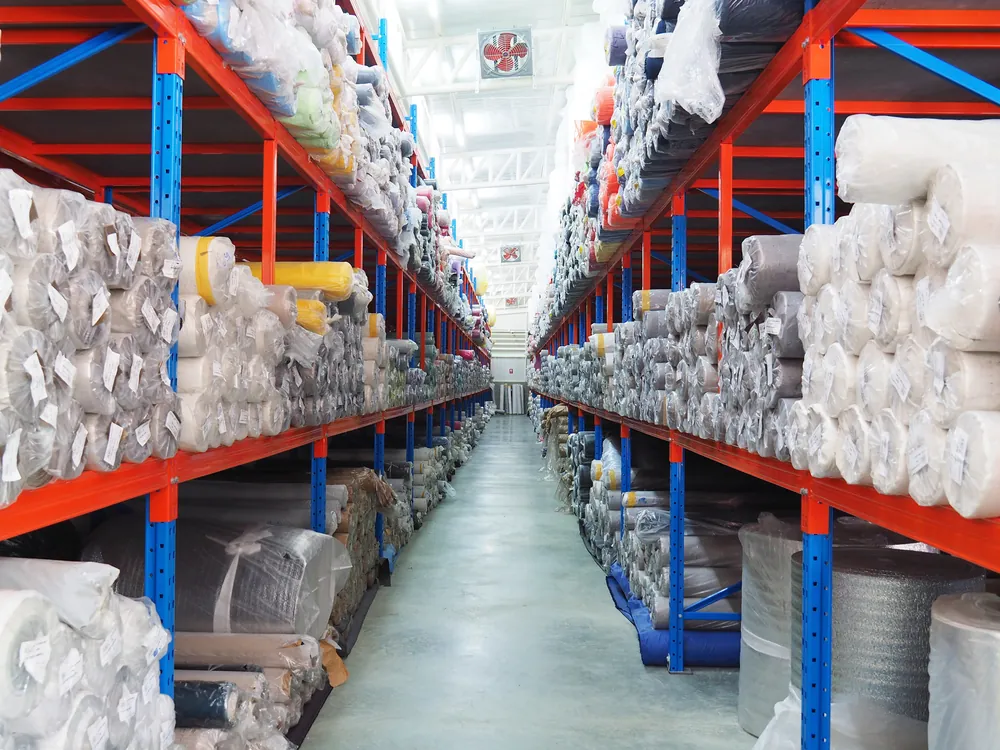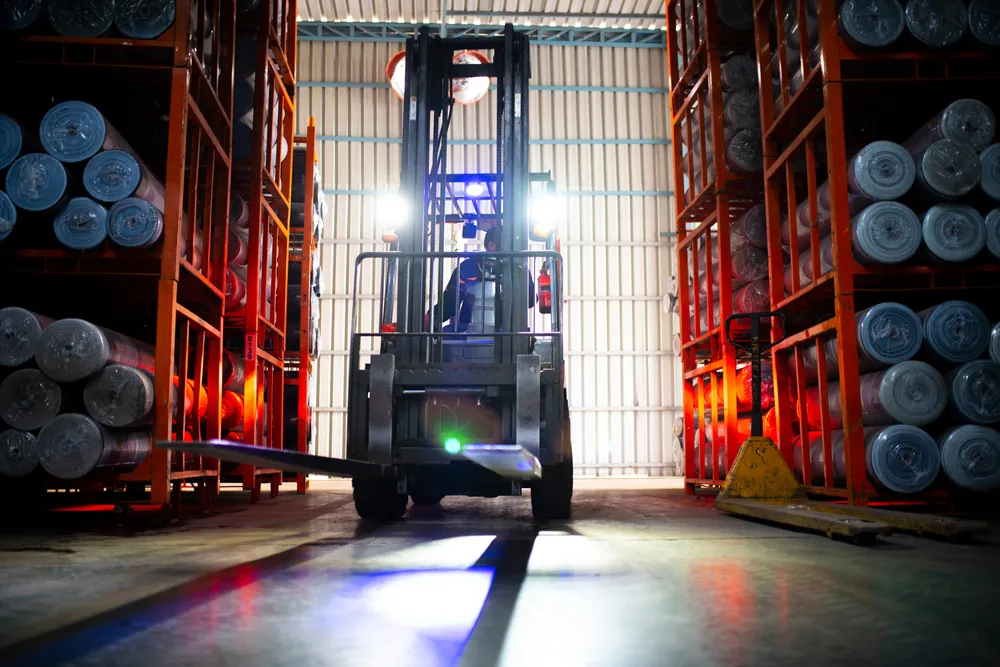
Shipping Textile Raw Material
Our transparency and visibility empower customers to have greater control over their shipments and ensure smooth operations when shipping textile raw material.
Shipping Textile Raw Materials
Textiles play a crucial role in our everyday lives, and understanding how they are transported from one place to another can shed light on the intricate logistics involved. There are several key factors to consider when shipping textile raw materials. Explore the world of textile shipping and the methods, considerations, and cost of shipping textile raw materials.
How to Ship Textile Raw Materials
- Palletization is commonly employed to prepare textiles for shipping. Yarn, thread, fabric, towels, bedding, and other textile goods are typically palletized.
- This involves stacking them neatly and securely on pallets, which can be covered in plastic wrap to safeguard the contents during shipment.
- Finished textile products, such as towels or sheets, might be placed in boxes or crates before being palletized. To maintain quality, it’s important to ensure that cloth, fabric, and textiles are clean and dry before palletizing them.
- The Federal Trade Commission emphasizes the need for careful labeling, indicating the country of origin and fiber content for each item. The carrier may require this information, which should also be included in the Bill of Lading to facilitate smooth transportation.
Thousands of businesses trust FreightCenter to move their freight faster, smarter, and cheaper! From unbeatable rates to top-notch service, our customers are raving about their shipping success.
See why they keep coming back!

At FreightCenter, we understand the importance of shipping textile raw materials with utmost care and efficiency. Our dedicated team of logistics experts specializes in handling delicate cargo, ensuring safe and timely delivery. Our extensive network, advanced tracking technology, and competitive rates guarantee a seamless shipping experience for all your textile raw material needs. Choose FreightCenter and experience excellence in textile shipping today.
Mode of Transportation
Ocean freight stands out as the most common method for shipping textiles worldwide. Over 90% of clothing takes at least part of its journey on a ship. With vast quantities of textiles being transported, ocean freight provides an efficient and cost-effective solution for bulk shipments.
Whether a full truckload (FTL) or less-than-truckload (LTL), textiles can be efficiently transported within the country. In some cases, intermodal transportation via rail is also utilized. Regardless of the mode of transport, clothing is generally suited for standard shipping containers or dry vans, as temperature control is usually unnecessary.
One popular textile transport method is full truckload shipping (FTL). This approach is favored when large quantities of textiles must be moved across the country or a specific region. If your textile shipment exceeds a few pallets or weighs more than 15,000 lbs, opting for FTL can be a practical choice.
For textile manufacturers, utilizing FTL or LTL shipping becomes crucial when moving products from the manufacturing plant to a warehouse, retailer, or manufacturer. By leveraging these shipping methods, manufacturers can streamline their supply chain and ensure a steady flow of textiles to meet market demands.
To create value for our customers by delivering customized shipping solutions that meet their unique needs and to fulfill shipping demands from simple to complex with expertise, guidance and ingenuity.
LTL shipping involves combining multiple small shipments from different customers onto one truck, allowing each customer to share the shipment cost. Trust the experts at FreightCenter to give you the best prices and the most comprehensive options for all your textile raw material shipping needs.
Truckload shipping, also known as full truckload (FTL), is a transportation option for freight that requires the entire trucks trailer space. Unlike LTL shipping, FTL shipping is reserved for larger commodities that exceed LTL weight and size limits, typically weighing more than 20,000 pounds or having dimensions that exceed 12 feet in length, 8 feet in width, and 8 feet in height. We deliver optimized solutions for full or partial truckloads and competitive dry van, flatbed, and refrigerated freight pricing. We can cover your full truckload shipping needs.
Nationwide Expedited Trucking services move your textile raw material securely and rapidly. Your freight requires fast delivery; our freight shipping experts can get your shipment fast, whether in one large box or a full truckload. Expedited shipping is a transportation option that prioritizes the speed of delivery for freight that needs to be shipped quickly. This can be especially important for urgent situations, such as engine repairs or replacements for critical machinery.
Specialized is a transportation option for items that require specialized handling, equipment, or shipping conditions. Specialized shipments may include high-value cargo, oversized cargo, or cargo that require temperature-controlled transportation. The most reliable Specialized Freight Services rates from all the top carriers are just a few steps away. From white glove service to international shipping, we've got you covered.


China's Textile Production
China has established itself as a powerhouse in the production of fibers and the creation of fabrics. China sets the stage for the global textile industry as the top textile-producing country. Consequently, it’s no surprise that shipping textile raw materials often begins with exports from China to various destinations worldwide.
Shipping Textile Raw Materials with FreightCenter
Shipping textile raw materials involve a well-coordinated process encompassing ocean freight, trucking, palletization, labeling, and cost considerations. Understanding these aspects can help textile manufacturers, retailers, and businesses ensure the efficient movement of textiles while meeting the market’s demands. The global textile industry thrives by implementing best practices and leveraging suitable shipping methods, enabling us to enjoy a wide range. Don’t forget to get your free quote or give us a call at (800) 716-7608.

